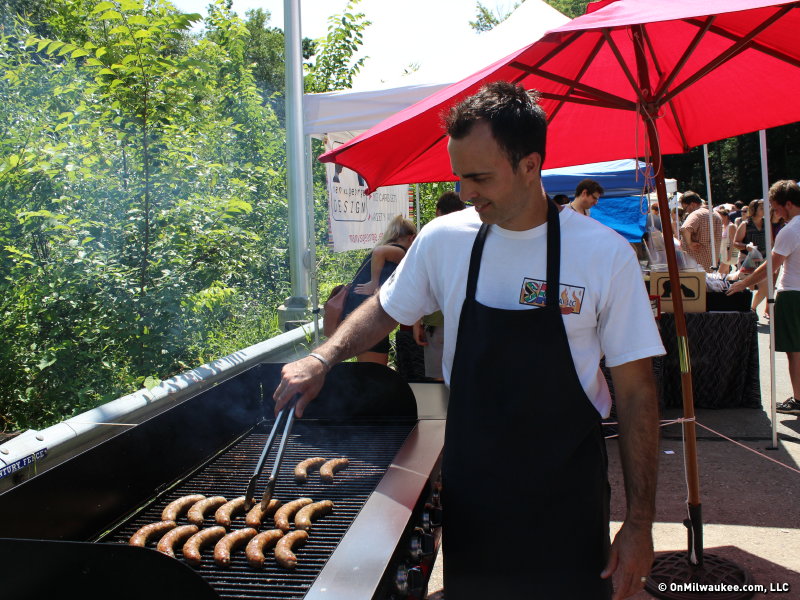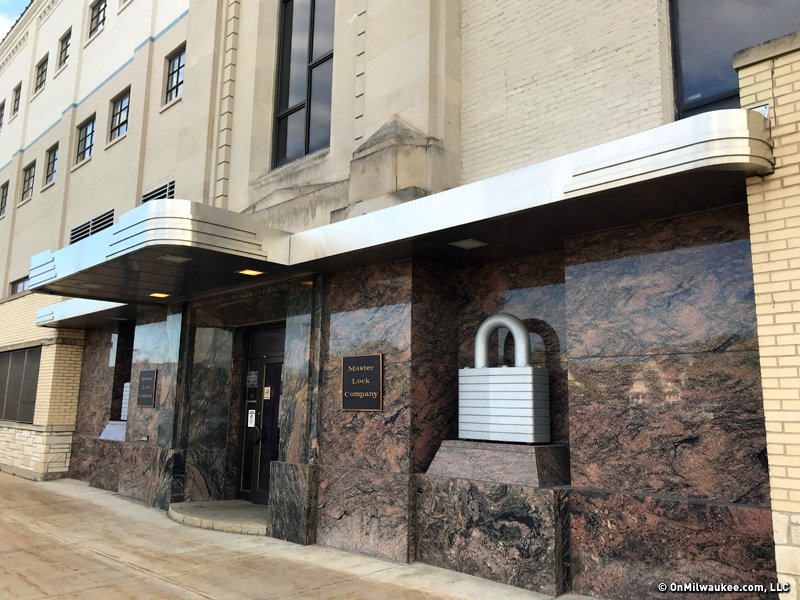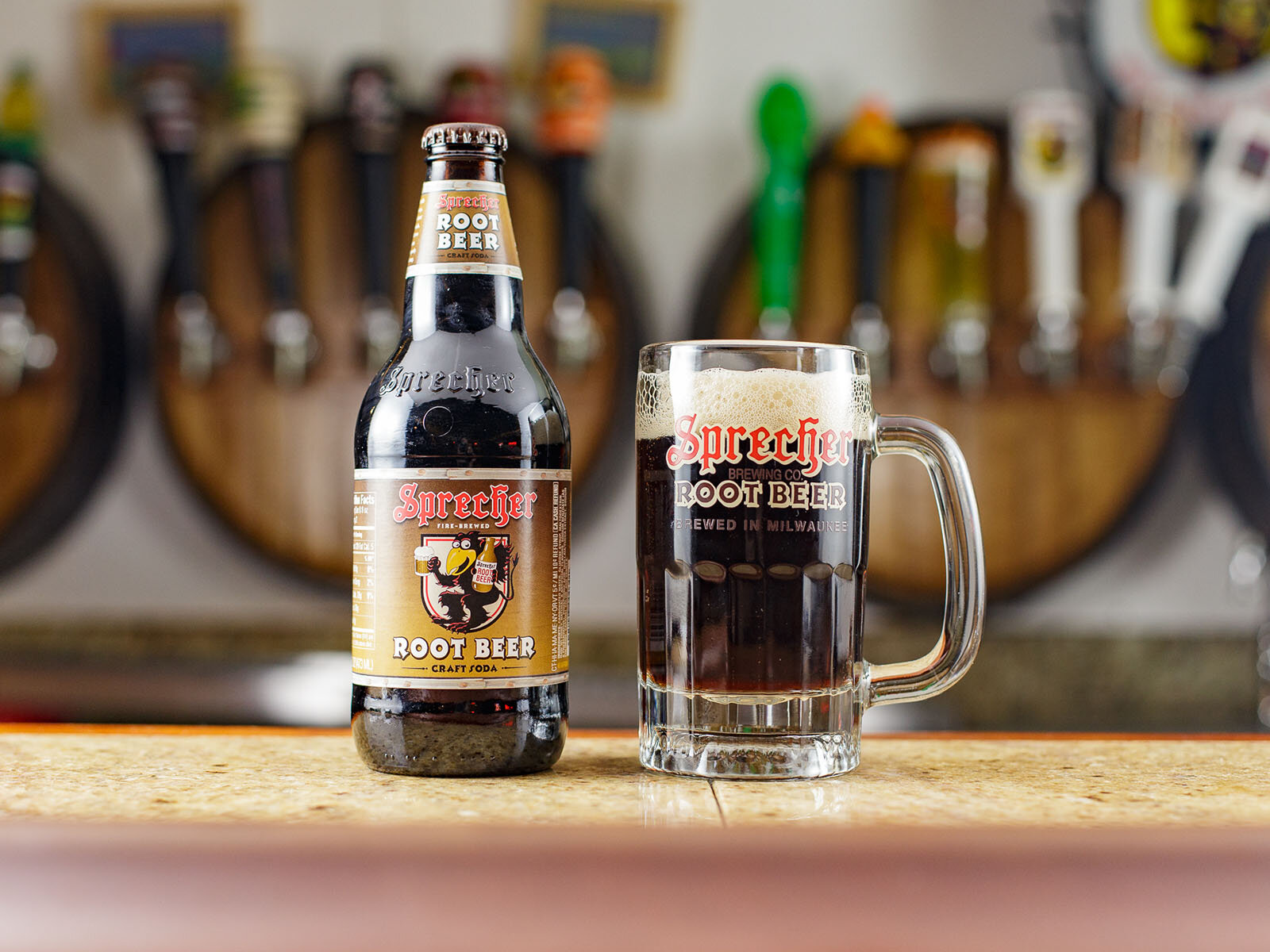Next time you’re perusing the stalls at the Wauwatosa farmers market, keep your eyes open for the sight of a colorful South African flag and the aroma of sausages on the grill.
That’s when you’ll know you’ve found one of the best new things available in Milwaukee – the South African boerewor sausage.
"It is a typical 'farm style' sausage you would find in South Africa," explains Matthew Devan, trained South African butcher and co-owner of SA Braai, a new company that makes the sausages. "Boerewors are made from pork and beef. They are the ‘brat’ of South Africa, and are typically served at a ‘braai’ or barbeque."
He goes on to explain that the word originated from Afrikaans, one of the many languages spoken in South Africa. "Boer" means farmer, and "wors" means sausage.
Traditionally, boerewors are cooked on a "braai" or barbeque grill outside. In fact, the phrase, "to braai," means, "to grill," and it’s traditional for South Africans to gather together informally, cook food and enjoy one another's company. The gathering, also, is referred to as a "braai."
The sausages themselves are made from a mixture of both ground pork and beef, and seasoned generously with spices. Like most boerewors found in South Africa, the predominant flavors are salt, pepper and coriander.
"They have a mild, but distinctive, flavor," Devan explains. "Customers have shared that they enjoy the SA Braai boerewors because they are not greasy."
Devan and his wife, Wendi, work the farmer’s market stand along with a crew of willing volunteers comprised mainly of friends and family. They sell fresh frozen sausages in packages of six for $8, as well as prepared sausages, served on a bun, for $4.50.
"We serve SA Braai boerewors at the Tosa farmers market as you would at a braai ... on a bun with chutney or tomato sauce (ketchup)," Devan says. "At our house we enjoy the leftovers in scrambled eggs, too. But you can be adventurous when preparing a boerewors – they can be casual, but also are a nice addition to a more sophisticated meal."
And Devan knows what he’s talking about. He learned the art of butchery from an early age at his father’s shop in East London, South Africa.
"My father purchased our local Butcher shop when he heard it was put up for sale," Devan explains. "In South Africa, jobs are limited so it's natural to become an entrepreneur to make a living. I enjoyed learning the skills of the trade and it takes a lot of training to perfect the art of butchery."
As part of Devan’s formal training, he participated in an apprenticeship program, eventually finding himself working at a butcher shop alongside his brother in Dublin, Ireland.
"When I lived in Ireland there were butcher shops on every corner," Devan says. "It was very much like home. Where I grew up, the butcher was a part of the daily routine – you stop by the market and then the butcher shop. And it is still that way today."
Devan met his wife, Wendi, when their paths crossed in Dublin. As Wendi recalls, it didn’t take long before they decided to start a new life together. The two got married and made the decision to move to Wendi’s hometown, Milwaukee, where Devan took a job working for Riverside Meats, a processing facility in New Berlin owned by the Pritzlaff brothers, Bruce and Mike.
"In the past 10 years, I have been introduced to so many great Milwaukee traditions," Devan says. "…the beer, the sausage, the cultural diversity. I love the worldliness of the city and I appreciate how people in the area embrace and celebrate different cultures and ethnicities – specifically with food and drink."
Currently, Devan is lucky enough to be able to produce his recipe for boerewors through the USDA inspected meat processor where he works. Devan cuts his weekly orders and hand selects the meat used in his sausages.
It’s a convenient agreement for the time being, Devan says. And he’s pleased that he’s able to offer the public a hand-crafted product that reflects the quality of what would be produced in a hometown butcher shop.
"People want to know what they are eating and who is handling it," he says. "There's also something to be said for the desire to eat quality, local meat – prepared by people who are invested in providing the best experience. It is a prideful job – it’s rewarding to make quality cuts of meat that eventually end up being enjoyed at the family dinner table. People can tell when there is pride in the finished result."
Although the company is brand new, the boerewors have developed quite a following – among both Milwaukee residents and native South Africans living in the area – so, the Devans are moving full speed ahead with the SA Braai concept.
Matthew has developed a recipe for traditional sweet and spicy South African chutney – a fruit based condiment that came to South Africa along with thousands of Indian laborers in the 19th century. He is currently exploring potential commercial kitchen sites to produce the product for sale.
In addition, Devan says he would like to start making traditional South African dried "wors" sausage, as well as biltong, a tough, slightly salty meat that comes in small, snack-size pieces, much like jerky.
Metcalfe’s Sentry has also expressed an interest in selling the SA Braai products, so the Devans are currently in the final stages of getting approval for packaging and UPC labeling for the boerewors. If all goes well, it’s likely consumers will see the sausages available in the Wauwatosa store by the end of the summer.
In the meantime, get your sausage fix by visiting the Wauwatosa farmers market between 8 a.m. and 12 p.m. on the following Saturdays: Aug. 10, 24 and 31; Sept. 14, 21 and 28; and Oct. 5 and 12.
As a passionate champion of the local dining scene, Lori has reimagined the restaurant critic's role into that of a trusted dining concierge, guiding food lovers to delightful culinary discoveries and memorable experiences.
Lori is an avid cook whose accrual of condiments and spices is rivaled only by her cookbook collection. Her passion for the culinary industry was birthed while balancing A&W root beer mugs as a teenage carhop, fed by insatiable curiosity and fueled by the people whose stories entwine with every dish. Lori is the author of two books: the "Wisconsin Field to Fork" cookbook and "Milwaukee Food". Her work has garnered journalism awards from entities including the Milwaukee Press Club. In 2024, Lori was honored with a "Top 20 Women in Hospitality to Watch" award by the Wisconsin Restaurant Association.
When she’s not eating, photographing food, writing or planning for TV and radio spots, you’ll find Lori seeking out adventures with her husband Paul, traveling, cooking, reading, learning, snuggling with her cats and looking for ways to make a difference.







